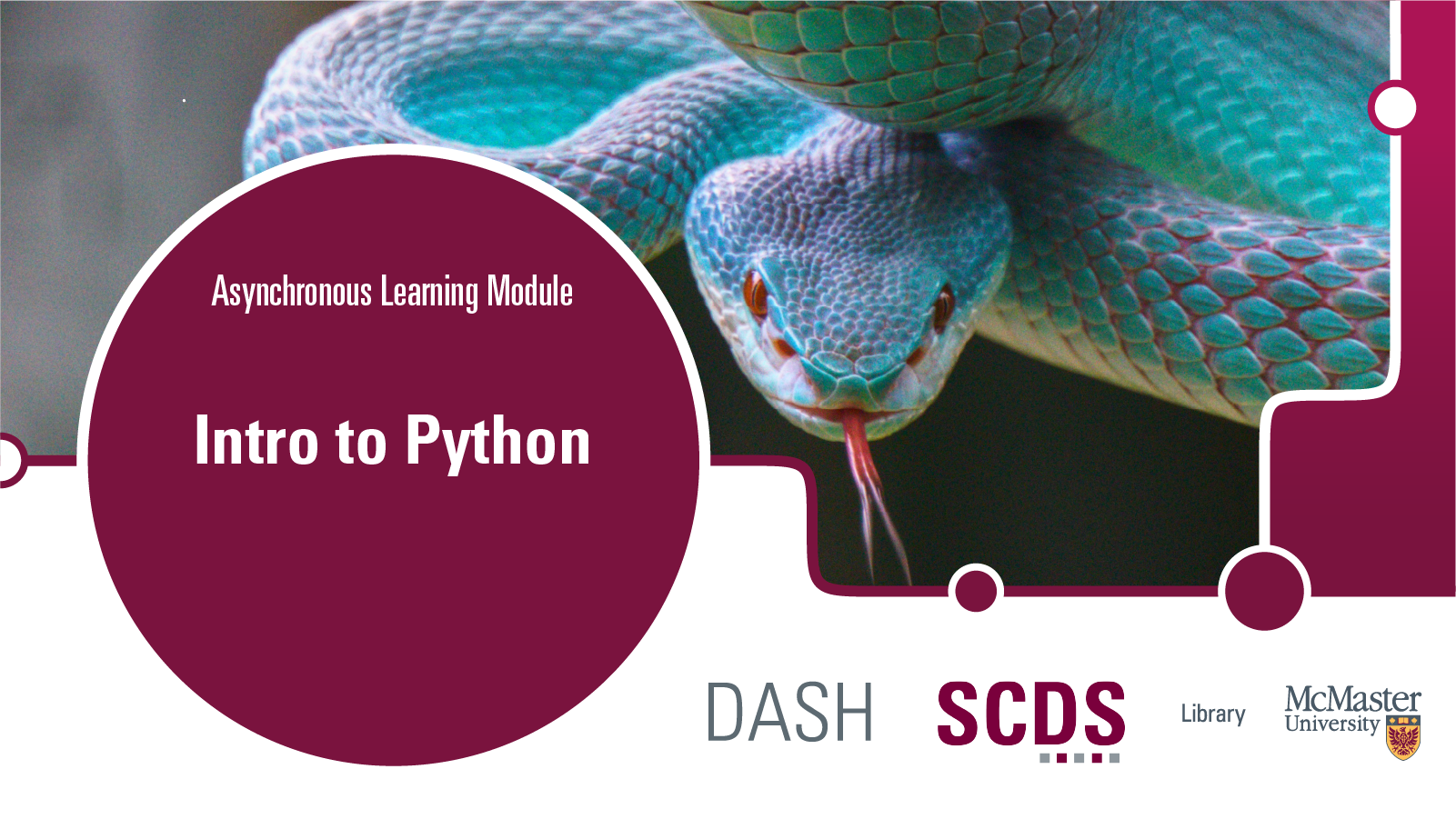
Introduction to Python
This beginner level workshop will introduce you to the basic concepts of one of the world’s most popular programming languages, Python. In this tutorial, you’ll learn how to store data using Python’s data types and variables, control the flow of a program using control structures, and create reusable code using functions. No prior knowledge of Python is required.
This workshop is offered by the Data Analysis Support Hub (DASH). Get in touch with DASH.
Prerequisites
Access to one of the following (this will be covered in the Preparation page):
- Jupyter Notebook
- Google Colab
- Local Python installation
Learning Objectives
By the end of this tutorial, you should be able to:
- Describe what Python is and how it can be used
- Create, use, and modify variables to store and use data
- Display textual data to the screen
- Understand the different Python built-in data types
- Use conditional statements and loops
- Create and use functions
Duration
This module will take around 1 to 2 hours, however feel free to work at your own pace!
Land Acknowledgement
McMaster University is situated in Ohròn:wakon which is the traditional territories of the Erie, Neutral, Huron-Wendat, Haudenosaunee and Mississaugas. This land is covered by the “Dish With One Spoon Wampum Belt Covenant”, an agreement between the Haudenosaunee confederacy and Anishinaabe nations to ensure those who live here take only what they need, leave enough in the dish for others, and keep the dish clean. This land is also covered by the Between the Lakes Treaty of 1792 and is very close to the 1784 Haldimand Treaty, which holds the land six miles to each side of the Grand River as a tract for Six Nations, which is currently not being honored.
Many of us at the Sherman Centre took the First Nations’ Information Governance Centre’s OCAP course this past year which stands for Ownership, Control, Access, and Possession. We encourage you to learn more about OCAP and Indigenous data management practices more broadly, including the OCAS principles endorsed by the Manitoba Métis Federation, the principles of Inuit Qaujimajatuqangit, ᐃᓄᐃᑦ ᑕᐱᕇᑦ ᑲᓇᑕᒥ (Inuit Tapiriit Kanatami) National Inuit Strategy on Research, and Global Indigenous Data Alliance’s CARE principles.